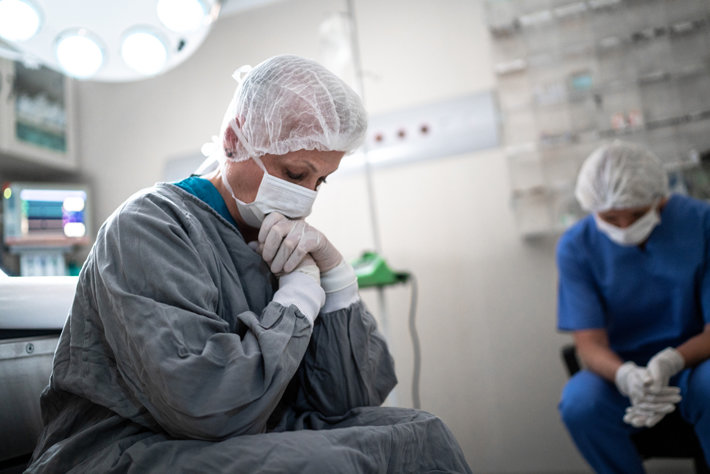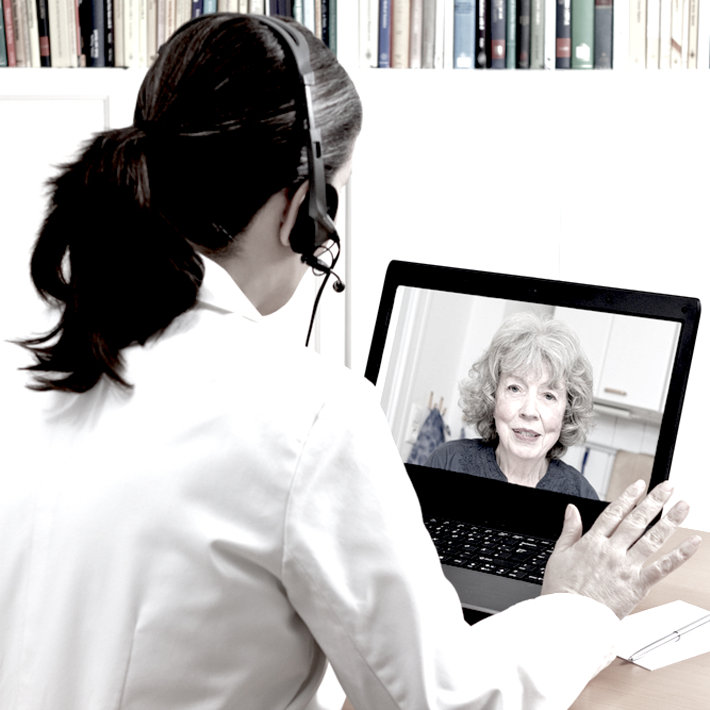How Often Do Medical Experts Become Addicted to the Very Substances They Sometimes Must Prescribe?

Thoughts of addiction often invoke images of homelessness, poverty, joblessness, malnourishment, dirty clothes, and an overall very unpleasant state of affairs. When addiction comes to mind, most people will likely envision someone down on their luck, who’s been through a lot of hardship, and who has decided to consume mind-altering substances as a coping mechanism.
For those who have been under a rock for the last decade or more, it might come as a shock to learn that addiction can affect the lives of successful professionals such as doctors, nurses, and medical specialists. Studies show that medical professionals suffer from addiction at a rate, almost double the national average.
The old adage that doctors make the worst patients has, unfortunately, never been truer.
What is the Scope of Addiction in Medicine?
According to a study published in the journal Mayo Clinic Proceedings, approximately 10 to 12 percent of physicians will develop an addiction to substances at some point in their careers. That rate of addiction well exceeds the rate of the general population. Similar rates of addiction occur among nurses and other medical experts, too.
Many factors make addiction among physicians a unique crisis. For one, it is not that well known that addiction does occur to this extent among medical experts. And this hidden factor of their addiction acts as an inhibitor towards getting physicians the help that they need.
Another factor is that physicians’ elevated social status often leads to their substance abuse becoming very serious before anyone finds out about it. Furthermore, the elevated nature of a physician’s life often has an isolating factor, making them feel as though they cannot seek help; that they need to be the ones providing help to their patients.
Risk Factors – Why Medical Experts Sometimes Fall Prey to Addiction
According to the Substance Abuse and Mental Health Services Administration, about 19.7 million Americans are addicted to drugs and alcohol. In a country of about 328 million, that means about six percent of the U.S. population is addicted to drugs.
Yet within the medical community, about 10 to 12 percent of such professionals struggle with addiction. If addiction is considerably more common among medical experts than among the general population, what might some of the risk factors be? What’s causing such individuals to seek out mind-altering substances? Following are six potential risk factors:
Proximity to prescription drugs: Without a doubt, one of the leading factors that have made the medical sector a hotspot for addiction is the sheer exposure that medical professionals experience when it comes to prescription drugs. This is a relatively recent development. In the last two decades, the production and distribution of highly addictive prescription drugs (namely opioid pain relievers) skyrocketed, putting these substances in front of medical experts daily.
Strong support for the prescribing of prescription drugs: During the first decade of the 21st-century, physicians came under a great deal of pressure to prescribe highly addictive prescription pain relievers as often as possible. Much of this is still ongoing today.
Long, stressful work hours: It’s no mystery that people in the medical sector often work long hours; most shifts consisting of 12 hours, some even longer. An excessive workload and the sheer number of hours worked can add to stress levels, pushing medical staff to take prescription drugs as a coping mechanism.
Exposure to harmful, disturbing events: Those who work in the medical sector, especially those who work in hospitals, will often face alarming events. Patients dying, severe illnesses, patients in pain, conditions worsening, and other factors all lead to an environment that might easily compel one to use substances.
Adopting a false sense of security due to one’s medical knowledge: Medical professionals may think that they can control themselves when self-medicating on prescription drugs simply because they know more about the drug than the layperson. This false sense of security might make them more likely to misuse substances.
Difficulty coping with other life responsibilities due to a demanding job: Medical professionals may begin to fall behind with their family, church, volunteer work, or other life responsibilities. Feeling like they are failing at other obligations could also lead to seeking drugs as a coping mechanism.
Addiction Treatment – Helping a Medical Professional Get Off of Drugs
Addiction is a life-threatening crisis that takes the lives of tens of thousands of Americans every year. For example, the Centers for Disease Control and Prevention estimated that about 72,000 Americans died from drug overdoses in 2019 alone.
Medical professionals often fall prey to addiction due to such frequent exposure to highly addictive and mind-altering prescription drugs. Sadly, with 10 to 12 percent of medical professionals addicted and so many Americans dying from drug abuse, more doctors, nurses, and medical specialists will die from overdoses until this problem can be brought under control. That’s why it’s so critical that addicted medical professionals be helped into and through addiction treatment.
In closing, the writings of Mayo Clinic study (Mayo Clinic Proceedings) authors Berge, Seppala, and Schipper are particularly relevant here, “Given the potential harm that might befall both the addicted physician and patients, it is essential that family, friends, colleagues, and employers not ’turn a blind eye’ to a physician in whom addiction is suspected. Effective, and often life-saving, evaluation and treatment are available and must be sought for the benefit of all.”
Please take those words to heart. If you have a family member or loved one in the medical sphere who you suspect is struggling with addiction, contact Narconon immediately. Doing so will be taking the first step towards getting your loved one life-saving help.
Sources:
- https://www.ncbi.nlm.nih.gov/pmc/articles/PMC2704134/
- https://www.samhsa.gov/data/sites/default/files/cbhsq-reports/NSDUHFFR2017/NSDUHFFR2017.pdf
- https://www.cdc.gov/nchs/nvss/vsrr/drug-overdose-data.htm
Expert review by Claire Pinelli, ICAADC, CCS, LADC, RAS, MCAP


 ®
®